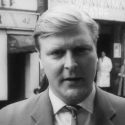If you’ve ever had that cold, clammy feeling following the realisation that an email, in which you have been less than flattering about a colleague, has accidentally landed in said colleague’s inbox, then you will have experienced roughly a millionth of the pain felt by assorted US government officials in the wake of the WikiLeaks scandal.
In late 2010, the website WikiLeaks posted around 250,000 secret communications between Washington and the scores of US diplomats stationed across the world, which were subsequently published in newspapers. Suddenly America’s private anxieties and political strategies were available for all to see. “It was”, said the reporter Richard Bilton in the first part of WikiLeaks: The Secret Life of a Superpower, “a bad day for US diplomacy”.
Bilton’s aim in the film was to determine the long-term impact of this most spectacular security breach, and what it told us about the world’s most powerful nation. If the programme didn’t dwell on the heady rush of schadenfreude felt by international observers as they caught sight of America with its pants down, it certainly lingered over footage of Secretary of State Hillary Clinton criss-crossing the globe dispensing unctuous apologies at every port. It was left to the former foreign secretary David Miliband to articulate the initial feelings of governments when the cables began spilling out, namely: “Thank God it’s not us.”
One of the more disappointing aspects of the leaks was the poor quality of name-calling
One of the by-products of Bilton’s absorbing and intensely analytical investigation was to provide a useful digest of the information yielded by the scandal, something we could have done with just over a year ago as cable after cable came into the public domain, prompting a widespread psychological condition known as Wikifatigue.
Based on Bilton’s edited highlights – and one would suppose these were the highlights, given the acres of information at their disposal – one of the more disappointing aspects of the leaks was the poor quality of name-calling. Berlusconi was “feckless, vain and ineffective”, Angela Merkel “risk averse and rarely creative”, and Prince Andrew “rude and cocky”. Come on, guys, you thought. Is that the best you can do?
There were revelations that smacked more of tabloid muck-racking than CIA-style stings, the most startling being that 92-year-old King Abdullah of Saudi Arabia has regular hormone injections and “uses Viagra excessively”. Why did the Americans need to know this? What were the implications to their national security? They were, came their defence, trying to assess the likelihood of the old fella having a stroke.
What became increasingly clear, as more secrets spewed forth, was that diplomats were effectively being asked to do the work of spies, a situation that led you to wonder what the real spies were up to. Other communiqués regarding the now deposed Egyptian president Hosni Mubarak, and the fate of Guantanamo detainees, underlined the ongoing tussle between America’s strategic interests and its democratic ideals. Ultimately, moral ambivalence, arrogance, hypocrisy and self-interest were the most prominent traits revealed by the cables. But then, of course, we didn’t need an international scandal to tell us that.
Bilton steered clear of the debate as to whether WikiLeaks, and subsequently the press, were right to publish the cables. He also studiously avoided calling on the opinions of the whistleblowers themselves. On reflection, this was probably a wise move. The only glimpse we got of the WikiLeaks overlord Julian Assange came in the form of news footage during which he sinisterly told attendant reporters: “I like crushing bastards.” If he then threw his head back and let out a maniacal “Mwah ha ha ha” the cameras didn’t catch it.















Add comment